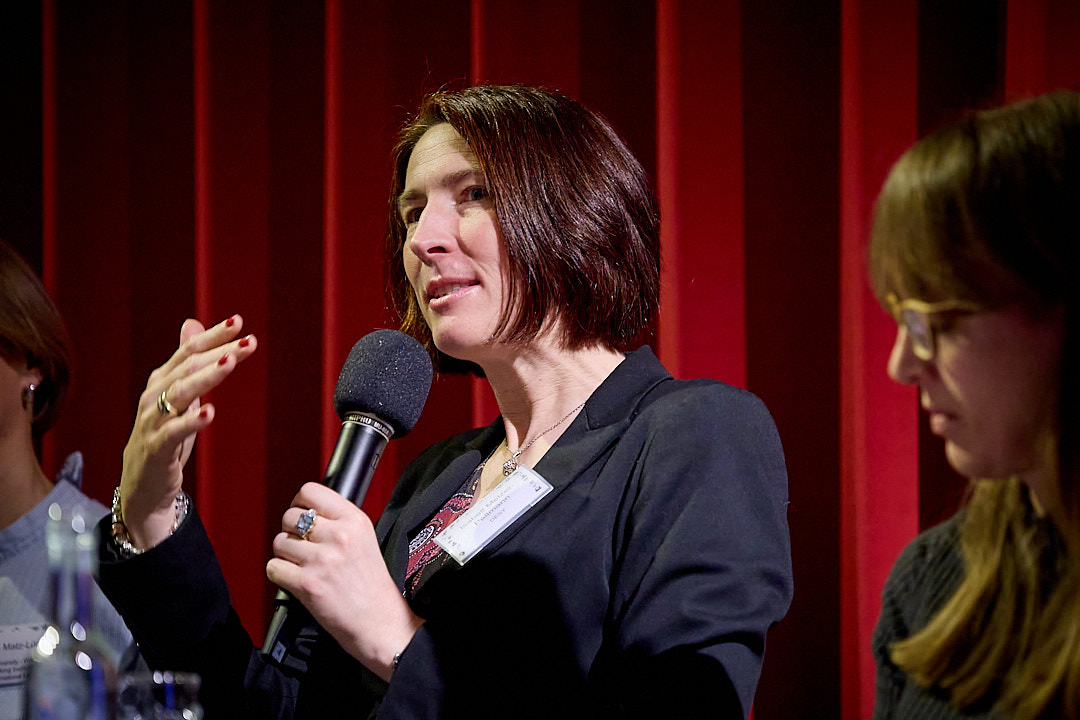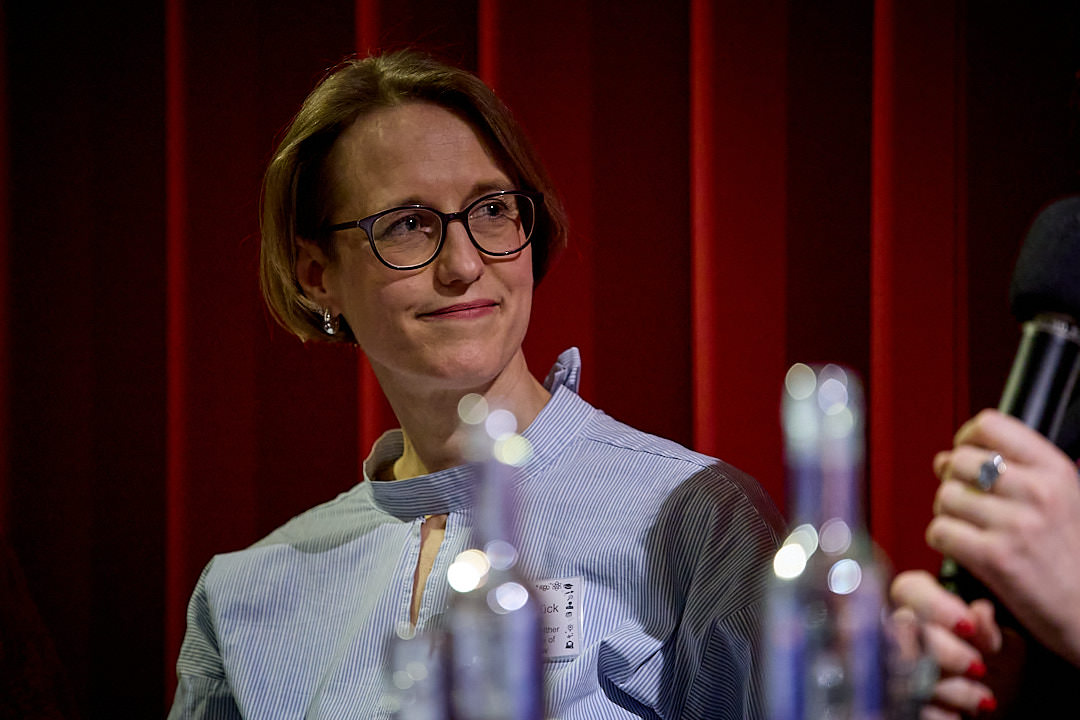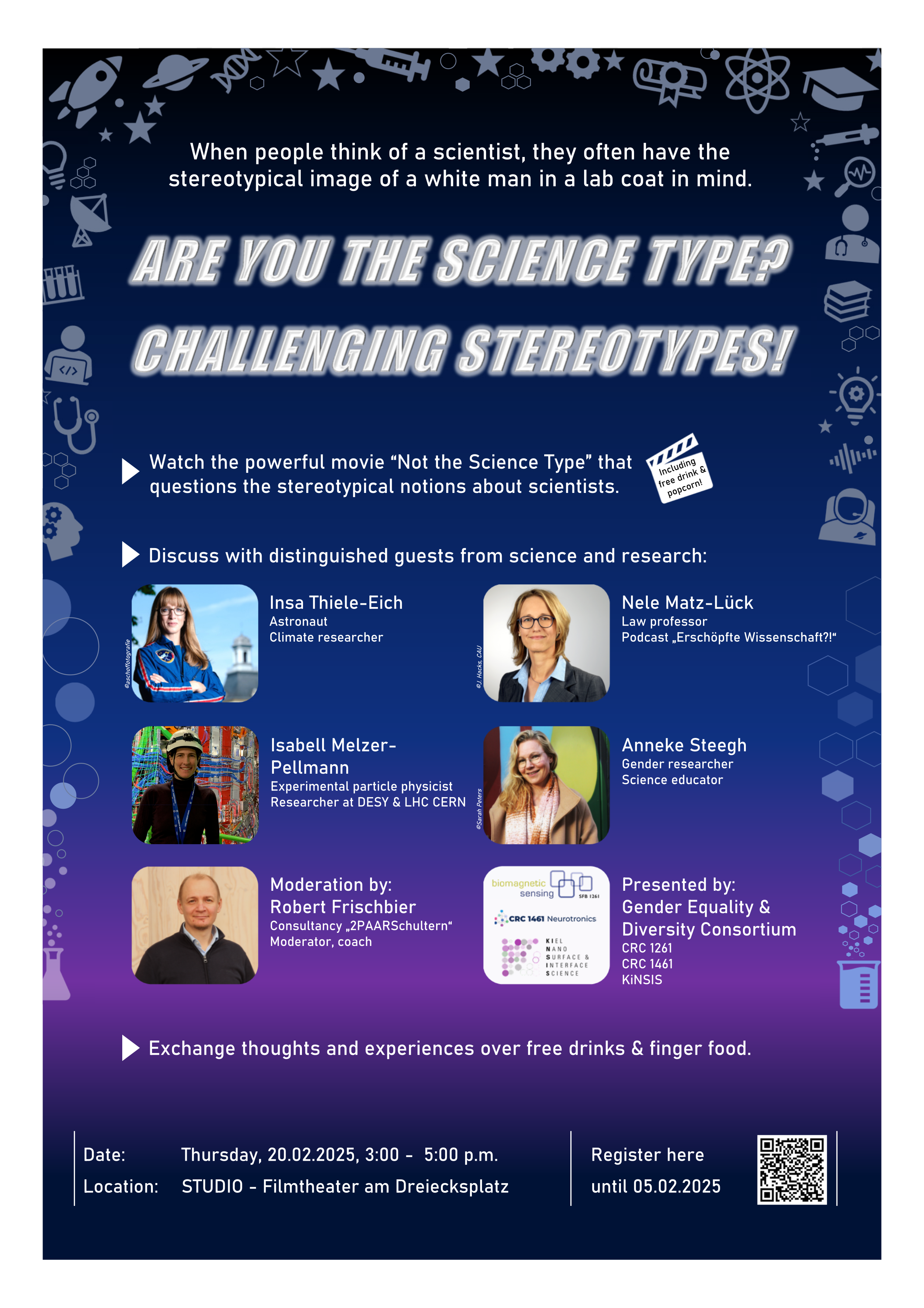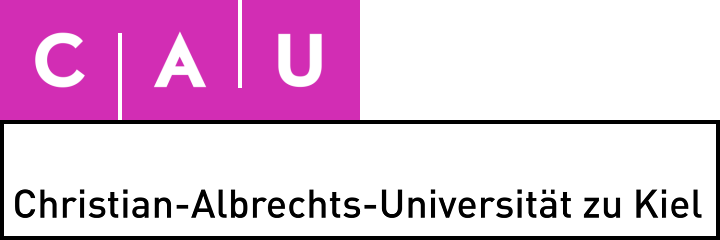Film Screening and Panel Discussion: Are You The Science Type? Challenging Stereotypes!
Science needs diversity: How role models and allies make the difference
 On February 20, 2025, the event "Are You the Science Type? Challenging Stereotypes!" took place in the Studio Filmtheater Kiel. Organized by the Gender Equality & Diversity Consortium (GEDC) of the priority research area KiNSIS with the Collaborative Research Centers 1261 and 1461, the afternoon brought together 80 scientists from the Christian-Albrechts University of Kiel (CAU) to question gender-specific stereotypes in science. In order to make the event family-friendly, the participants' children were also welcome. The CAU family service provided a play corner with childcare on site. The graphic recording during the panel discussion provided a visual eye-catcher, with key ideas and discussion results being visualized live in illustrations.
On February 20, 2025, the event "Are You the Science Type? Challenging Stereotypes!" took place in the Studio Filmtheater Kiel. Organized by the Gender Equality & Diversity Consortium (GEDC) of the priority research area KiNSIS with the Collaborative Research Centers 1261 and 1461, the afternoon brought together 80 scientists from the Christian-Albrechts University of Kiel (CAU) to question gender-specific stereotypes in science. In order to make the event family-friendly, the participants' children were also welcome. The CAU family service provided a play corner with childcare on site. The graphic recording during the panel discussion provided a visual eye-catcher, with key ideas and discussion results being visualized live in illustrations.
The event began with the screening of the documentary film Not the Science Type, a 3M production that portrays the career paths and challenges of four successful female scientists. The film served as a stimulus for the subsequent panel discussion, which was moderated by Robert Frischbier. The panelists included Dr. Insa Thiele-Eich (climate researcher and astronaut), Prof. Dr. Nele Matz-Lück (law professor and host of the podcast "Erschöpfte Wissenschaft"), Dr. Isabell Melzer-Pellmann (experimental particle physicist) and Dr. Anneke Steegh (gender researcher and science education researcher).
Role models, mentoring and structural barriers
 A central topic of the discussion was the importance of role models and mentors in scientific careers. Isabell Melzer-Pellmann reported that she initially saw herself neither as a scientist nor in a leadership position- it was only through targeted encouragement and support from outside that she found her way into an academic management position. Nele Matz-Lück also emphasized that she received support through mentoring to continue climbing the career ladder. In her case, it was a male colleague who encouraged and supported her. Insa Thiele-Eich emphasized that women's career setbacks are less due to personal shortcomings and more a result of systemic barriers. In addition, regardless of gender, financial and mental resources are crucial for a successful academic career. Anneke Steegh added that equality can only progress if targeted education and support programs are established. She also pointed out the still low level of diversity at German universities. This affects not only gender, but also ethnic origin, religious affiliation and sexual identity. Another point of discussion was the general expectation of successful women in science and research to act as role models. Nele Matz-Lück pointed out that such a role model position also comes along with considerable pressure to meet expectations, which can quickly become a mental burden. Insa Thiele-Eich added that although a successful career is often visible, the challenges and hardships that come with it are not. Nevertheless, female role models are essential, if only to counteract the numerous male role models in science, politics, business and sport.
A central topic of the discussion was the importance of role models and mentors in scientific careers. Isabell Melzer-Pellmann reported that she initially saw herself neither as a scientist nor in a leadership position- it was only through targeted encouragement and support from outside that she found her way into an academic management position. Nele Matz-Lück also emphasized that she received support through mentoring to continue climbing the career ladder. In her case, it was a male colleague who encouraged and supported her. Insa Thiele-Eich emphasized that women's career setbacks are less due to personal shortcomings and more a result of systemic barriers. In addition, regardless of gender, financial and mental resources are crucial for a successful academic career. Anneke Steegh added that equality can only progress if targeted education and support programs are established. She also pointed out the still low level of diversity at German universities. This affects not only gender, but also ethnic origin, religious affiliation and sexual identity. Another point of discussion was the general expectation of successful women in science and research to act as role models. Nele Matz-Lück pointed out that such a role model position also comes along with considerable pressure to meet expectations, which can quickly become a mental burden. Insa Thiele-Eich added that although a successful career is often visible, the challenges and hardships that come with it are not. Nevertheless, female role models are essential, if only to counteract the numerous male role models in science, politics, business and sport.
Strategies for sustainable change
The discussion revealed that one could not only act as a role model, but also as an advocate, i.e. as a committed advocate for junior female scientists and all other female colleagues. The concept of allies is also crucial: influential supporters, especially male colleagues in leadership positions, can bring about sustainable structural changes through alliances and targeted micro-activism, i.e. through small impulses. Maintaining one's own authenticity is also a key element here. The participants in the discussion agreed that standing up for oneself and one's opinion, not allowing oneself to be forced into stereotypes and, in particular, recognizing one's own achievements are important factors in going one's own way as a woman in science and research. Finally, the panel discussed how stereotypical thought patterns in science can be broken down. Isabell Melzer-Pellmann emphasized that even one woman in a leadership position can trigger a domino effect, inspiring and encouraging other women to continue to advance their scientific careers. Anneke Steegh advocated the development of networks to specifically support female scientists, whether through mentoring programs or proactive personnel decisions. The audience also addressed the perception of "quota women". The participants shared the opinion that women in leadership positions are often confronted with the accusation that they only received their position because of their gender. Nevertheless, it is crucial to use the visibility gained, to take on responsibility and thus achieve equality in science in the long term.
The event showed that establishing true equality in science is a long-term and multi-layered process. At the same time, it became clear that numerous committed female scientists, including the panel guests at the event, are actively driving and shaping change. Visible role models and supportive allies, structural changes and an open debate about barriers and opportunities are essential in order to raise awareness of diversity and achieve more equal opportunities in the long term.
Photos of the event © Pat Scheidemann
Text: Tina Kerby

Download Flyer "Are You the Science Type? Challenging Stereotypes!"
Organized by the Gender Equality and Diversity Consortium of the Priority Research Area Kiel Nano, Surface and Interface Science at Kiel University.




